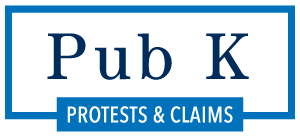Government counterclaim asserted under the CDA’s anti-fraud provision is dismissed as barred by the statute of limitations. The CDA’s anti-fraud provision states that there must be a determination of a government fraud claim within six years. The government argued that this statute operates like other statutes of limitations—i.e., it merely requires the government determine there was a fraud and file a claim within six years. The court, however, reasoned that the government can only “allege” or “claim” fraud; only a court could make a “determination.” Thus, the statute required the court to make a determination of fraud within six years. Because six years had passed since the alleged fraud occurred without a court determination, the fraud claim was barred by the statute of limitations.
Lodge Construction, Inc. had a contract with the Army Corps of Engineers to rehabilitate a levee in Palm Beach Florida. Performance of the contract required construction of a cofferdam—an enclosure that allows work to be performed below the waterline. Lodge submitted a cofferdam design to the Corps. After some revisions, the Corps approved Lodge’s design.
But in 2012, during performance, the cofferdam failed catastrophically. The Corps retroactively disapproved of Lodge’s cofferdam design and requested the company submit a new design. Lodge submitted claims to the Corps challenging the disapproval of its design and seeking compensation for cofferdam’s failure.
Lodge failed to produce a new cofferdam design. As a result, the Corps terminated the contract for default. In addition, the Corps denied Lodge’s claims.
Lodge filed suit with the Court of Federal Claims seeking damages, contract modification, and conversion of the termination of default into a termination for convenience. The government asserted counterclaims against Lodge alleging fraud for false delay costs, double-billing, and improper pass-through claims. Both parties moved for summary judgment.
In its motion, Lodge argued that one of the government’s counterclaims, which alleged violation of the Contract Dispute Act’s anti-fraud provision, was barred by the statute of limitations. The CDA’s anti-fraud provision states if a contractor is unable to support a claim, and that inability is attributable to fraud, the contractor is liable to the government for the amount of the unsupported claim and the costs the government incurred reviewing it. The provision further provides that “[l]iability under this paragraph shall be determined within 6 years of the commission of the fraud.” Lodge argued that the alleged fraud had occurred in 2012, so the six-year limitations period had run.
The court noted that under a plain reading of the statute, there must be “determination” within six years that the contractor is liable for fraud. The statute, however, did not specify what a “determination” of liability entails and who must make the determination. COFC cases that had considered this issue had come to different conclusions.
The government argued that—similar to other statutes of limitations— a “determination” is made when the Department of Just makes a fraud determination and asserts fraud claims prior to the expiration of the six-year period.
The court reasoned that the government was essentially suggesting that the statute imposes filing deadline on the Department of Justice. But, the court opined, if Congress have wanted to create a filing deadline it knew how to do so. Indeed, Congress had specifically provided filing deadline in other limitations periods under the CDA.
The court agreed with Lodge’s interpretation of the statue as requiring the court to make a determination before expiration of the six-year period. The Department of Justice may “allege” or “claim” fraud, but only a court can “determine” liability. Here, the alleged fraud had occurred in 2012. The CDA’s anti-fraud provision is a civil penalty, so it is not subject to the discovery rule. The court had not made a determination of fraud in the six years since the fraud occurred. The claim was thus barred by the statute of limitations.
The government argued that the statute was susceptible to the equitable tolling doctrine. The court, however, found that equitable tolling only applies when the a litigant has pursued their rights diligently but some extraordinary circumstance prevent them from bringing a timely action. There are three generally types of extraordinary circumstances that warrant equitable tolling: (1) defective pleadings, (2) misconduct that induces a party to miss a filing deadline, and (3) the claimant’s injury was inherently unknowable. None of those circumstances applied in this case.
Aside from the CDA anti-fraud claim, the court found that summary judgment for either party was precluded by multiple issues of material fact.
Lodge is represented by Michael H. Payne of Cohen Seglias Pallas Greenhall & Furman. The government is represented by John R. Roberson, Deborah A. Bynum, Robert E. Kirschman, Jr., and Brian M. Boynton of the Department of Justice.




